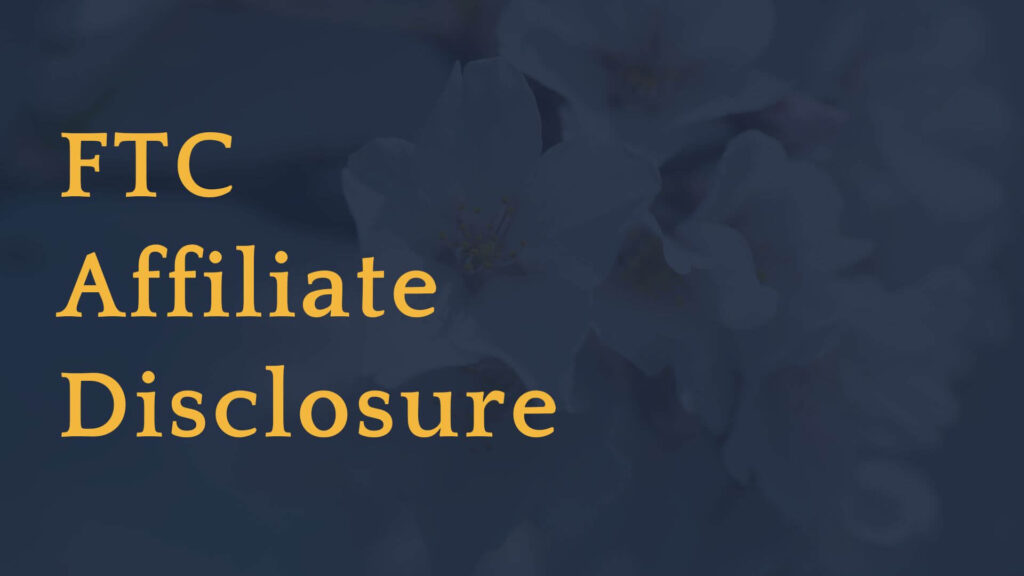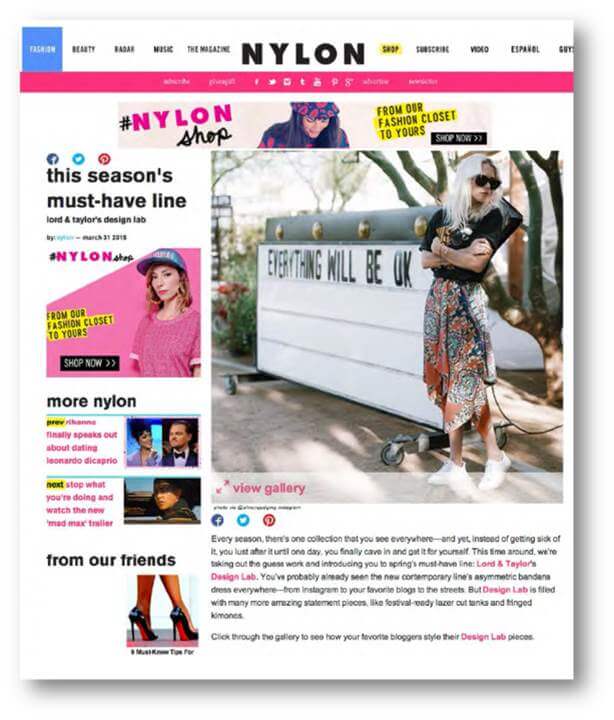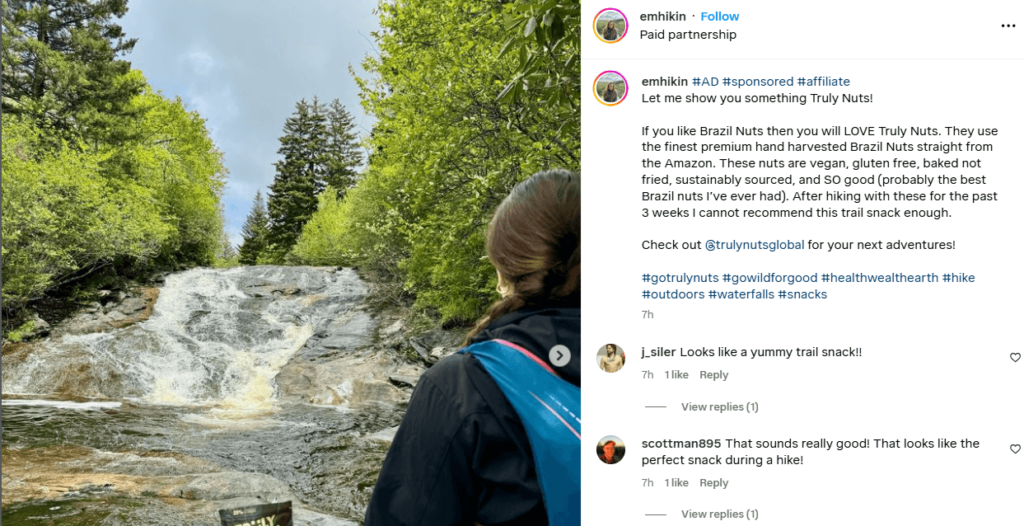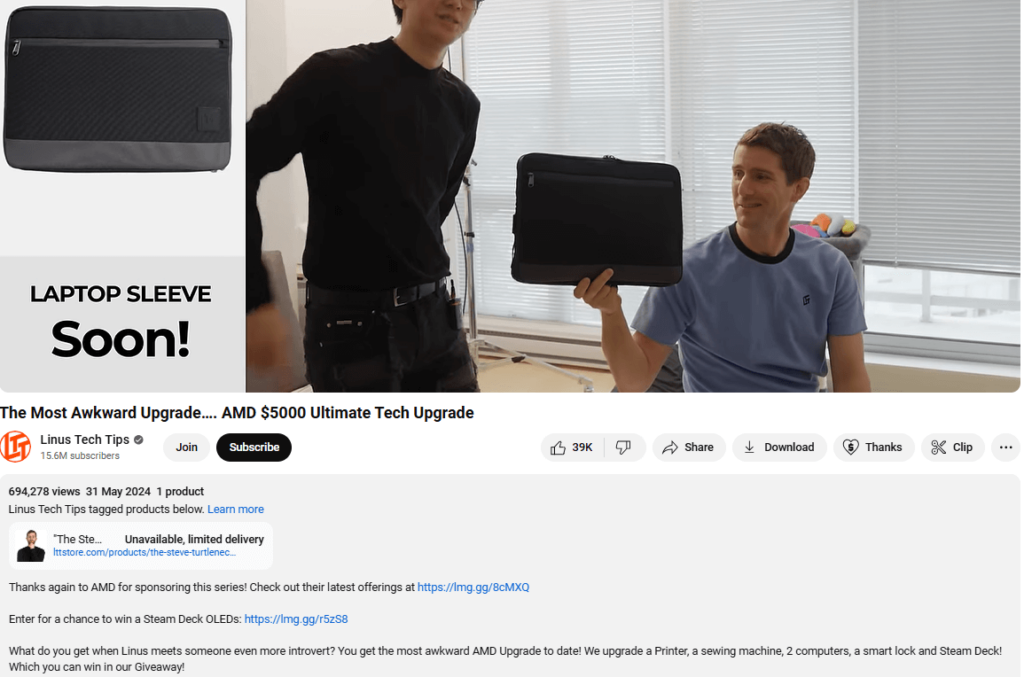
What is FTC?
The Federal Trade Commission (FTC) is a U.S. government agency. It enforces laws that protect consumers from deceptive or unfair business practices. This includes rules about advertising and marketing disclosures.
And, of course, any activities in affiliate marketing are the subject of the FTC’s regulation.
What is an FTC Affiliate Disclosure?
An FTC affiliate disclosure is a statement that affiliate marketers must make. It’s a rule from the Federal Trade Commission, saying they have to tell their audiences if they get paid for promoting products. This helps people know if the marketer earns money when they buy something through a link.
It is a t fundamental legal requirement for being an affiliate.
Who needs to follow FTC Affiliate Disclosure?
Affiliates must follow FTC rules by clearly disclosing their relationships with companies. They must tell consumers if they have financial interests or incentives to promote a product or service.
International affiliates promoting products to U.S. consumers are still subject to FTC regulations if their activities have a substantial effect on U.S. commerce. As such, they are required to comply with the same disclosure requirements as domestic affiliates.
All types of affiliates are subject to the FTC’s rules of affiliate disclosure. This includes bloggers, social media influencers, YouTubers, website owners, email marketers, and anyone else who earns commissions by promoting products or services through affiliate programs.
Simply, FTC is a part of the requirements for any affiliate wannabe.
FTC Affiliate disclosure best practices
- Clarity: Disclosures should be easy to see and understand. Place them where they are noticeable.
- Proximity to the claim: The disclosure should be close to the affiliate link or endorsement.
- Language: Use simple language like “This post contains affiliate links” or “I may earn a commission if you buy through these links.”
- Platform-specific: Adjust disclosures to fit the platform, whether it’s social media, blogs, newsletters, or videos.
- Continuity: Always include disclosures in every piece of content with affiliate links.
Consequences of violating FTC regulation
For small violations, the FTC can conduct investigations over your activities, and write warning letters to you. The more serious violations may lead to legal action.
If you don’t follow FTC disclosure rules, you can face legal consequences. These can include fines, penalties, and injunctions. Companies and individuals might also suffer reputational damage and a loss of consumer trust. They could also be banned from affiliate programs.
In many cases, both affiliates and merchants share responsibility for the lack of disclosure about the sponsorship. Not only do affiliates have to acknowledge their disclosure diligence but the brand also needs to encourage and ensure them to do so.
Take, Lord & Taylor’s FTC violation, for example.
In 2016, Lord & Taylor was charged by the FTC for not disclosing that they paid influencers and a fashion magazine to promote their clothing. The company paid 50 influencers to post about a dress and also paid for a favorable article (which appeared as an editorial review but was, in fact, an advertisement).

Neither the posts nor the article informed people that they were paid advertisements. The FTC took action, and Lord & Taylor had to agree to clearly disclose paid promotions in the future. Lord & Taylor got a bit of legal and reputational damage after this.
Related: Common affiliate violations
FTC Affiliate Disclosure: Examples & pre-designed for you.
FTC Affiliate Disclosure using hashtags
Mainly used on social media, social media influencers who monetize their audience with affiliate marketing can simply mention #ad or #sponsored to stay FTC compliant.
Here’s an example of Emhikin promoting Truly Nuts and asking her audience to check out the brand’s Instagram account.

Normally, using hashtags such as #affiliate, #ad, and #sponsored are clear enough to help the audience recognize this as a promotional post.
If you are looking for more options, here is a list to choose from:
#partner
#paidpartnership
#affiliatead
#affiliatelink
#sponsor
#commission
#promotion
Plus, there are some hashtags that may confuse readers and will not be recognized as affiliate relationship disclosure. Here are some hashtags you should not use while promoting brands using your personal account:
| Not accepted hashtags | Reasons why it’s not accepted |
| #spon | Ambiguous and not clear to all users |
| #collab | Ambiguous and not specific to affiliate relationships |
| #gifted | Often used for free products, it doesn’t clarify affiliate relationship |
| #ambassador | Can imply a broader relationship beyond just affiliate links |
| #partnered | Without specifying the nature of the partnership, it may not clarify affiliate links |
| #aff | Too abbreviated and may not be understood by all users, |
| #promo | Ambiguous and doesn’t explicitly indicate affiliate relationship |
| #sp | Similar to #spon, can be ambiguous |
| #blessed | Often used for personal gratitude, not suitable for disclosure |
| #thanks | Ambiguous and doesn’t clarify affiliate relationship |
FTC affiliate disclosure in content text
Including a disclosure statement within the content is a common and effective method for following FTC rules. This applies to blogs, video descriptions, and social media captions.
To meet best practices, the disclosure should be clear & easy to see. Optimally, you can place the disclosure at the start of the content or right next to any affiliate links to make sure it’s noticeable and transparent.
In a blog post, an affiliate disclosure may look like this.

Here are some examples you can use:
- “This post has affiliate links. I may earn a commission if you buy.”
- “Disclosure: I use affiliate links. I might earn a commission.”
- “Some links here are affiliate links. I may get a commission.”
- “I earn commissions from purchases made through these links.”
- “Affiliate links are used here. I may get a commission if you buy.”
FTC affiliate disclosure in your YouTube video
If you can earn an affiliate commission from your YouTube video, you need to disclose this information both in your video and in the video description (caption). This ensures that viewers are aware of the affiliate relationship, regardless of where they engage with your content.
- Verbal Disclosure: Mention the affiliate relationship verbally during the video. This can be done at the beginning of the video or right before promoting the affiliate product or link.
- Caption Disclosure: Include a clear and concise disclosure at the beginning of the video description or nearby affiliate links. This ensures that anyone reading the description is immediately informed about the affiliate relationship.
Here is an example of Linus Tech Tips adding disclosure both in their caption and in the very first line of the video. Check it out!

FTC affiliate disclosure in affiliate websites
An FTC affiliate disclosure tells your audience you might earn money from affiliate links. However, there are chances that only some of the links added in your content are affiliate links. So, it is best to notify visitors in advance.
To follow the rules, you can use a popup when people visit your site, a banner on the top or bottom of each article, or a disclaimer in a section like the footer or About page. Doing this keeps you honest and builds trust with your audience.
For example, take a look at Wirecutter, one of the most popular affiliate websites.

Here are some disclaimers you can use for all pages of your website:
- Example 1: “Disclosure: Some of the links on this site are affiliate links, which means I may earn a commission if you click on them and make a purchase. This helps support the website and allows me to continue creating content. Thank you for your support!”
- Example 2: “Affiliate Disclosure: This website contains affiliate links. If you make a purchase through these links, I may earn a commission at no extra cost to you. Your support helps us keep the site running.”
- Example 3:“Please note that some of the links on this website are affiliate links. If you click through and make a purchase, I will earn a commission. This does not affect your purchase price and helps us maintain the site.”
Additionally, you can also notify audiences about affiliate links on your site using a sidebar popup. There are multiple plugins for you to do it, such as OptinMonster, Sumo, Hello Bar, etc.
